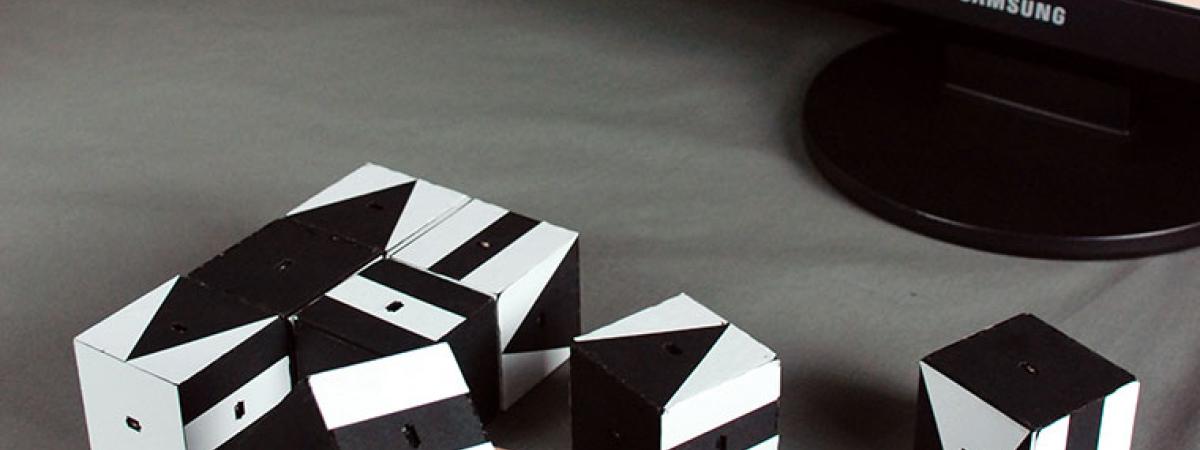Case Western Reserve University researchers modernizing cognitive skills testing to detect deficits, problem-solving strategies and more
Psychologists have long used building blocks to assess cognitive skills. But researchers at Case Western Reserve University are embedding the blocks with technology that may provide a clearer view of problems a child or adult may suffer due to developmental disabilities, brain trauma or dementia. In testing college-age adults, blocks with sensors inside detected hyperactivity and revealed the problem-solving strategies used by each subject. The sensors also detected performance accuracy and the time each user took to complete given tasks. The blocks are fully automated, wirelessly relaying data to a computer. The technology could potentially allow a parent or other caregiver in a rural home to administer tests while a trained clinician hundreds of miles away completes the assessment by internet. “These Sensor-Integrated Geometric Blocks, or SIG-Blocks, can be used for cognitive testing and training with subjects of any age, and the testing is customizable,” said Kiju Lee, assistant professor of mechanical and aerospace engineering at Case Western Reserve and leader of block development. The research is published in the journal Computers in Human Behavior. Lee’s coauthors are Donghwa Jeong, a PhD student at the Case School of Engineering; Rachel Schindler, a PhD student in psychology; and Elizabeth Short, psychology professor.Preliminary test
In this first set of tests, 89 college students played what are called Tangible Geometric Games, using blocks with printed geometric patterns on their surfaces. The games required them to:- Assemble multiple blocks to reflect an image of blocks on a computer screen.
- Fill in a missing block to match a pattern shown on a computer screen.
- Recreate a pattern flashed on the screen and removed.





